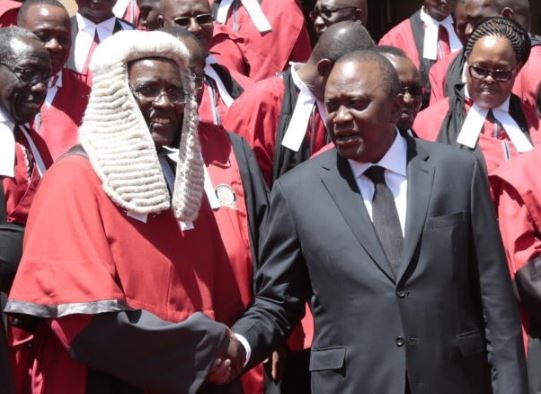×
The Standard e-Paper
Kenya’s Boldest Voice

The Judiciary has blamed the National Treasury for underfunding, saying the inadequate cash was largely the cause of stalled projects and gaps in service delivery at the country’s law courts.
According to a report released by the Chief Justice on Thursday, the Judiciary has received the lowest share of the national budget among the three arms of government over the past few years.